Press Reviews
October 2021
International Media Digest
EU REAFFIRMS EUROPEAN PERSPECTIVE FOR THE BALKANS, BUT NO TIMELINE FOR ENTRY
European Union leaders were expected to reassure the Western Balkans about their future integration in the EU at a summit held in Slovenia in October. However, the union failed to offer the countries in the region a timeline for entry, the most awaited step in the Balkans.
The ‘EU-Western Balkans summit’ organised by Slovenia, which is currently holding the EU presidency, was hailed as an opportunity for the European Union to relaunch the currently stalled enlargement process to the Balkans. Furthermore, EU leaders planned to persuade the leaders of Albania, Bosnia and Herzegovina, Serbia, Montenegro, North Macedonia and Kosovo, frustrated by the delays in the accession process, that the EU entry remains their best hope.
“We want to send a very clear message and that message is that Western Balkans belong to the European Union,” said European Commission President Ursula von der Leyen before the meeting. Accelerating the EU enlargement process is a “priority” for Slovenia, and the European Union has “the duty to honour its words,” in particular towards countries such as North Macedonia and Albania, which are waiting for the green light to open negotiations, said Slovenian Foreign Minister, Anze Logar.
However, the summit did not result in any concrete steps after heated discussions about the text of the final declaration of the meeting. In the ‘Brdo Declaration’, adopted by the EU member states, the EU reaffirmed “its unequivocal support for the European perspective of the Western Balkans.” Furthermore, the institution welcomed “the commitment of the Western Balkans partners to the European perspective, which is in our mutual strategic interest and remains our shared strategic choice.”
Moreover, the EU reconfirmed “its commitment to the enlargement process and its decisions taken thereon, based upon credible reforms by partners, fair and rigorous conditionality and the principle of own merits.” It was the first time that at an EU summit the word “enlargement” was included in a final declaration, a significant step forwards, at least on paper. At the previous EU-Balkans summit in Zagreb, for instance, “some countries had gone to extra length to make sure the word ‘enlargement’ does not appear in the declaration”, but that was not the case in Brdo.
Nevertheless, EU leaders disagreed on setting a precise timeline for granting the Western Balkan nations the membership. According to diplomatic sources, Slovenia tried to convince the EU fellow member countries to admit western Balkan states by 2030, facing resistance from several European leaders convinced that the region is not ready to join the EU and that the European Union currently is not in the position to accept new members. “We also recall the importance that the EU can maintain and deepen its own development, ensuring its capacity to integrate new members,” the Brdo Declaration also stated. German Chancellor, Angela Merkel, said that she opposed setting a deadline that “puts us under pressure in the end.” “It is no secret that Slovenia wants to build a more fixed timeline into the declaration. Although it was not included, we did discuss the matter,” Slovenia’s Prime Minister Janez Jansa confirmed.
The lack of a precise deadline for membership will further exacerbate the disillusion towards the EU integration process growing in the Western Balkans countries. The frustration for the delays is already pushing countries in the region closer to Russia, China, Turkey and certain Arab countries. The influence of Russia and China has been increasing in particular in the previous months, with Moscow and Beijing sending millions of doses of vaccines to the region and continuing to funnel significant loans, primarily for infrastructures and energy-related projects. That said, both national vaccines have, for various reasons, less effectiveness than hoped for.
NEW COVID CRISIS ENGULFS THE REGION
Vaccine reluctance and the lack of doses in several parts of the Balkans, the region with the lowest vaccination rates in Europe, brought high costs in October. Countries like Romania, Bulgaria and Serbia were invested by a devastating wave of infections soaring to unprecedented levels as we shall see further, but also other countries in the region recorded a significant increase of cases and deaths.
According to official data collected by the University of Oxford, only 16% of the total population was fully vaccinated against Covid-19 in Bosnia and Herzegovina as of mid-October, approximately 21% in Bulgaria, 31% in Albania, 32% in Romania, 37% in North Macedonia, 38% in Montenegro, 40% in Kosovo, 43% in Serbia and Croatia and 53% in Slovenia, against 79% in Spain, 76% in Denmark and 87% in Portugal.
The new Covid wave was catastrophic in Romania, overwhelmed by steady daily increase of new cases and a health system torn apart by the pandemic, forcing the authorities to reintroduce the night curfew and close schools. A similar scenario was observed in neighbouring Bulgaria and even in Serbia, where the vaccination campaign, one of the most successful in the region until spring, came to a halt in the past months due to vaccine reluctance.
Deaths also increased to the highest level ever recorded since the start of the pandemic, with Romania’s daily toll of 19 deaths per million as of October 20, being the highest level in the world, ahead of Bulgaria and Moldova. Until October 20, Romania registered 14.000 new infections on average each day and 420 deaths daily. The catastrophic wave brought Balkan countries at the top globally for deaths per million. As of October, after Peru (5.961 deaths per million), Bosnia and Herzegovina are second in the world for people deceased from Covid compared to the population size (3.527 per million), followed by Bulgaria (3.430), North Macedonia (3.402), Montenegro (3.322) and Hungary (3.188).
Three general reasons can explain the low number of vaccinated persons in the Balkans. Firstly, several countries in the region faced a slow rollout of vaccines. Except for Serbia, which managed to acquire vaccines from China and Russia at the beginning of the year, the rest of the Western Balkans had to wait for late deliveries from the so-called COVAX system. Moreover, the region suffers from a chronic vaccine hesitance, fuelled by authorities’ reticent information campaigns and the lack of support from the important institutions, such as the national Orthodox churches.
Secondly, there is a weak trust in government, medical personnel and medical advice from doctors in the entire region.
Thirdly, the region is historically prone to be negatively affected by disinformation, in particular through social media, a phenomenon that could have reinforced the vaccination aversion in the region. “The situation in some Member States remains grave” and “to further increase vaccination rates throughout the Union, efforts to overcome vaccine hesitancy should be stepped up, including by tackling disinformation, notably on social media platforms,” the European Council warned in October.
The new Covid crisis has led to restrictions in several countries, ranging from mask mandates to partial lockdowns and the introduction of Covid passes in several countries, which were followed by street protests against new restrictions in Serbia and Bulgaria. There is fear that if the epidemiological situation further escalates, it could lead to even greater limitations that might negatively impact the region’s ongoing economic recovery and social stability.
Further News and Views
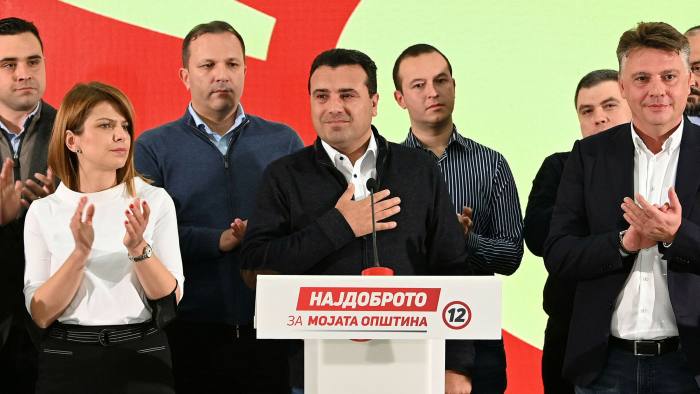
North Macedonia PM resigns after defeat in local elections
North Macedonian Prime Minister, Zoran Zaev, said he was resigning following his Social Democratic Party (centre-left wing) poor record in local elections. “I take responsibility for the results of these elections and I resign as prime minister”, Zaev said. However, the move must be approved by the Parliament, where the current majority could try to find a new Prime Minister. The main opposition party in this Balkan country, the centre-right wing VMRO-DPMNE, called for early elections. “The government has been de-legitimised”, said opposition leader Hristijan Mickoski. The defeat of Zaev was in part due to failure of EU to open accession negotiations, said the political analyst Florian Bieber on Twitter. Zaev’s resignation will open the way to the a period of instability and could facilitate the return to power of nationalist VMRO-DPMNE, which opposed the name deal with Greece, has a more timid stance towards EU integration and is closer to Orban’s Hungary, being supported by other authoritarian parties in Europe.
Politico, Rfi
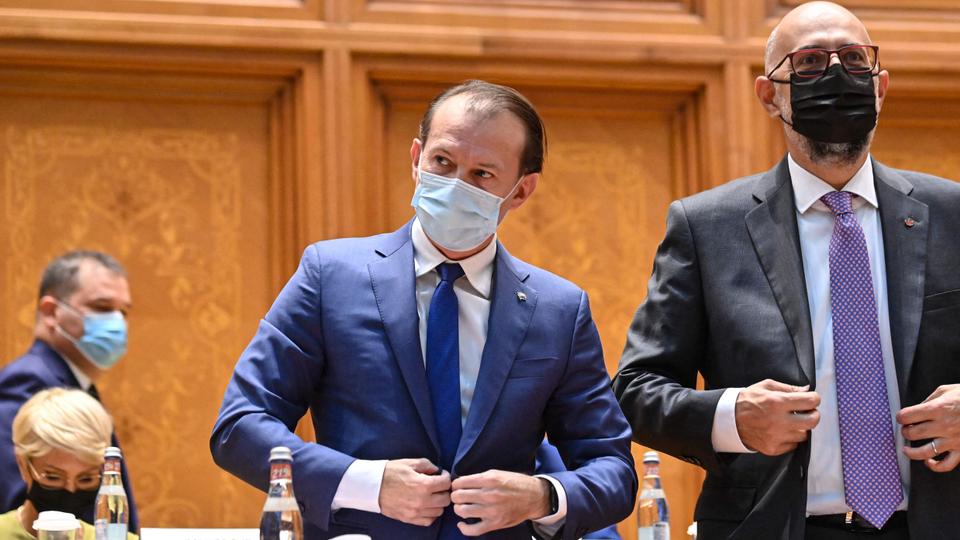
In Romania government collapses, new crisis in Bucharest
With neighbouring Bulgaria heading towards the third election in a year, Romania is also facing a complex political crisis amidst a catastrophic Covid wave. The government of liberal Prime Minister Florin Citu was brought down by a no-confidence vote in October, forcing Romanian President, Klaus Iohannis, to try to nominate an interim government, unsuccessfully. Citu’s former allies of the centre-right USR party withdrew from the coalition accusing the liberal leader of “dictatorial attitude,” while the opposition said that the PM was “impoverishing Romanians”. Early elections in spring are not excluded.
Euractiv, IBNA, Bloomberg, Balkan Insight
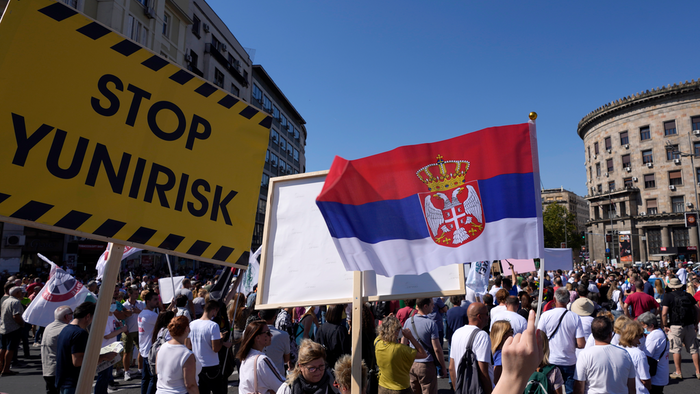
Serbia could become a global lithium giant amidst protests
Serbia could become one of the biggest world producers of lithium in the following years as the world’s second-largest miner, Rio Tinto, hopes to speed up the exploitation of significant reserves of lithium-borates in the Balkan country. Rio Tinto committed 2,4 billion dollars to the so-called “Jadar project” in Serbia this year. “Jadar will produce battery-grade lithium carbonate, a critical mineral used in large scale batteries for electric vehicles and storing renewable energy,” the company said. However, the project faces resistance in Serbia, with residents and environmental activists claiming that the project is highly damaging to the environment. Protests were held in several cities in the previous months. Serbia will decide on Rio Tinto’s lithium mine after an environmental study and a referendum on the issue.
Rio Tinto, N1, Balkan Green Energy News
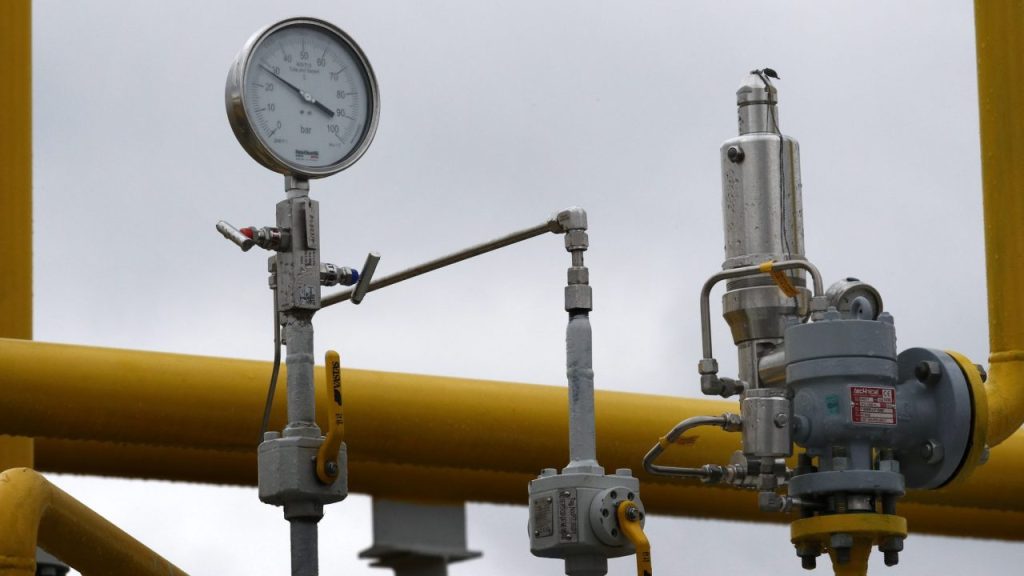
Energy and food prices spike in the region
Increasing energy prices, particularly gas, are prompting concerns in the Western Balkans ahead of winter. Even Serbia, the most loyal ally to Russia in the region and almost totally dependent on Russian supplies, could be affected by a ten-fold increase of prices, media reported. However, authorities claim that Serbia is negotiating with Moscow, seeking to preserve the current gas price until next June 2022. Albania, also due to increasing prices, declared a state of emergency in October. Energy and prices of food and fuel are significantly increasing in the whole region, particularly in Bosnia and Herzegovina, North Macedonia, Kosovo and Montenegro. Several countries introduced energy caps to keep prices under control. In a region still marred by low living standards, high inflation combined with low salaries could potentially lead to social unrest and increased instability, exploitable by hybrid operations.
Balkan Insight, Bloomberg, Tass, Bne Intellinews, SeeNews

Balkans and Central and Eastern Europe growing faster than the euro area
Countries in the Western Balkans, together with nations in Central and Eastern Europe, are experiencing a faster recovery after the Covid crisis than countries in the euro area, according to estimates of the Vienna Institute for International Economic Studies (WIIW) and of the World Bank. WIIW said that countries in the so-called CESEE region would record a 5,4% growth this year, 1,2% more than expected and 0,6% more than the euro area. “The strong performance of the Eastern European economies is mainly explained by the less strict COVID rules in many places.” WIIW said. “However, the recovery remains fragile.” the World Bank warned. “Inflationary pressures (…) are on an upward trajectory,” and the region, due to low vaccination coverage, is “less prepared to withstand new pandemic flare-ups and resulting impact of domestic or international movement restrictions,” the Bank noted.
WIIW, World Bank
Monthly Analysis
DODIK’S MOVES PUSH BOSNIA AND HERZEGOVINA
TO THE BRINK OF DESTABILISATION
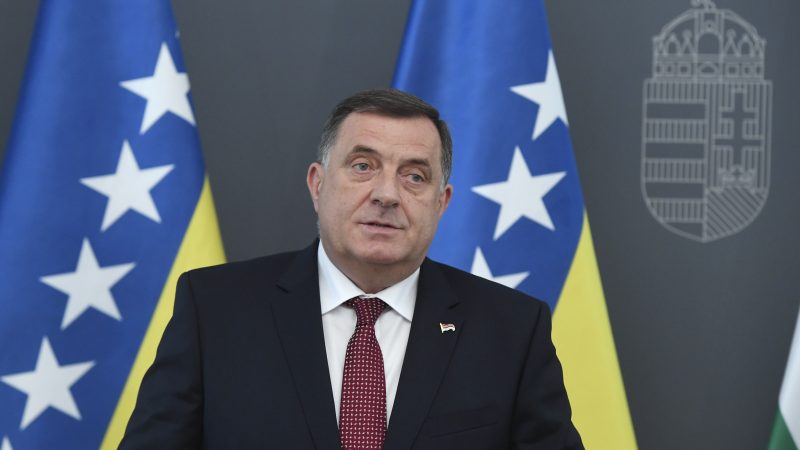
More than 25 years since the end of the war, the stability of Bosnia and Herzegovina (BiH) and peace itself could be threatened again after recent controversial moves and announcements made by the Bosnian Serb nationalist leader Milorad Dodik. Dodik is currently the Serbian member of the tripartite Presidency of the Balkan country.
The crisis started in the summer, when the outgoing High Representative in Bosnia and Herzegovina (OHR), Valentin Inzko, decided to introduce amendments to the Bosnian criminal law and make punishable the acts of publicly denying or justifying the genocide in Srebrenica and other war crimes committed in Bosnia. The long-awaited decision of Inzko was welcomed by the survivors of the war and by politicians in Sarajevo but triggered outrage among Bosnian Serbs, with Dodik itself accusing the OHR and the international community of wanting to mark the entire Serbian people as “genocidal.” Dodik repeatedly said he does not recognize the authority of the High Representative.
As first retaliation against the law, the leadership of Republika Srpska (RS), the Bosnian Serb political entity in Bosnia, announced a boycott of the central institutions by Bosnian Serbs representatives. RS leadership also warned that the police of Republika Srpska will protect those who are eventually indicted for denying the genocide in Srebrenica.
The situation escalated further in October, with Dodik announcing that Republika Srpska will introduce new laws that will pave the way for the withdrawal of the Bosnian Serbs representatives from the joint Indirect Tax Administration (ITA), the central High Judicial and Prosecutorial Council (HJCP) and even from the Armed Forces of Bosnia and Herzegovina (OSBiH) in the coming months. The Bosnian army was officially formed in 2005 by merging the Bosniak-Croat Army of the Federation of Bosnia and Herzegovina and the Bosnian Serbs’ Army of Republika Srpska.
The RS has already formed several expert teams that will deal with issues of defence, law, the new Constitution of the RS,” said Milorad Dodik. The announcement of withdrawing from the Armed Force is particularly sensitive in the country. It suggests that the Bosnian Serb leadership could push for the creation of its own armed forces. Dodik did not deny that Republika Srpska could follow that path by saying that a new separate RS army could be set up “within a few months.” Dodik already evoked the secession of Republika Srpska from Bosnia and Herzegovina in the past, and labelled it as “an imposed country.” According to Zeljko Komsic, the Croat member of the Presidency, Dodik should be incriminated for “a criminal act of rebellion.” Komsic claimed that a plan exists to defend Bosnia if Dodik forms a Republika Srpska’s army. “If passed in the Republika Srpska (RS) Parliament, or implemented without formal legislative approval, Dodik’s moves would amount to secession, even if no declaration of independence is issued,” the political commentator Daniel Serwer said.
Controversial actions followed Dodik’s announcement. On October 20, the Parliament of Republika Srpska passed a law that paves the way for the creation of an autonomous Bosnian Serb medicine procurement agency, taking over the powers of the centralised Bosnian Agency for Medical Equipment and Drugs, launched in 2009. The Constitution of Bosnia explicitly prohibits the two political entities that form the country to create an agency, which would overtake the duties and powers of a federal agency. According to experts and analysts, the creation of the Agency could be interpreted as a prodding gesture before going towards the realisation of separate tax, judicial and security Bosnian Serb institutions. Just two days after, the Bosnian Serb police organised an “anti-terrorist” drill on the mountains overlooking Sarajevo, with special forces equipped with assault rifles, helicopters and armed vehicles. In Sarajevo, politicians read the drills as an anticipation of creating separate armed forces and Bosniak and Croat leaders spoke openly of a “provocation.”
The situation in Bosnia has sparked fears that the country could be heading towards a period of severe destabilisation. While Dodik’s moves could have the tacit approval of Russia, according to Dodik itself, the EU and the US stated that they have “serious concerns about increasingly divisive rhetoric in Bosnia and Herzegovina.” “We call on all parties to respect and protect state institutions, resume constructive dialogue, and take steps to advance progress on the EU integration path – including on relevant reforms,” a joint statement of the US government and the EU read. Western powers are “united in their firm support for the territorial integrity of Bosnia and Herzegovina.” they noted. It is not clear at this stage if lukewarm external pressures would force Dodik to back down.
The Insight Angle

ADNAN HUSKIC
Political and Security Analyst and Commentator;
Christian Schwarz Schilling Professor
at Sarajevo School of Science and Technology;
Project Manager of Friedrich Naumann Foundation in BiH; President of the Centre for Election Studies
Are you concerned by the ongoing crisis in Bosnia, with Milorad Dodik openly threatening a de facto secession of Republika Srpska? What to expect in the country in the following months? And what the EU and the US should do to avoid an escalation or even a conflict?
Some elements of the current crisis bear a resemblance to the beginning of the conflict in former Yugoslavia. Withdrawal from institutions, unilateral decisions aimed at weakening the state level, the weakness and disunity of western actors, and generally unfavourable regional political dynamics, to mention just a few.
There are significant differences too, but one must be acutely aware of two ongoing processes. The increasingly hostile atmosphere created in the country, that makes serious incidents more likely to happen. And the fact that the rule of law, constitutionalism and democratic institutions in the country suffered irreparable damage through all the previous crises rendering them virtually powerless. Those two put together make for an explosive mixture and potentially very dangerous developments.
Ideally, the EU and NATO (and the USA) should proactively approach the crisis as a united front. However, short of generic joint statements calling for de-escalation and focus on socioeconomic issues and returning to institutions, this will hardly happen. Disorientation and incoherence in the approach of the previously relatively monolith western presence in Bosnia indicate severe fractures and disagreements in the West. Bosnia, in this sense, represents a very useful early warning system as we could trace such negative developments in the country before they become visible in these institutions themselves.
To put it bluntly, if NATO and the EU are unable to properly address the current crisis in Bosnia, reverse negative trends and actively engage in punishing those responsible for illegally dismantling Bosnian institutions, that will embolden openly anti-western forces in and around Bosnia, but also in the West, for Bosnia is a symbol of western engagement. Unless we counter this one, the next iteration of the crisis in Bosnia or the region will be worse and more dramatic.
We witnessed new tensions in Kosovo in the past weeks. Do you think it is still realistic to expect some steps towards normalising the relations between Belgrade and Pristina?
Hardly, if all actors in the process are the same and the dynamics in the region remains the same or further deteriorate. Over the past few years, it has become painfully clear that the EU does not have a clue what to do with Western Balkans or how to drive the few positive processes forward. Not to mention to turn the tide around. It is also clear that the USA do not wish to engage in the region. Several years back, the EU put forward as a priority for Western Balkans (WB) countries the resolution of all bilateral disputes before entering the EU. This plunged the region into an even deeper crisis. While completely legitimate, for the EU does not want these countries to import their bilateral disputes in the EU, the push proved not genuine in the case of North Macedonia, or increasingly futile and exhausting in the case of Serbia and Kosovo. For Bosnia, it only accelerated the return of identity politics and ethno-territorialism to the fore placing ever greater distance between political elites and peoples.
Also, the EU has not given up on the “policy” of trying to work with Serbia at all costs to achieve the stability of the region. Serbia is undisputedly the crucial element in this equation and must be engaged with. However, this method simply does not deliver. The current Serbian government thrives on conflict and strengthens its legitimacy through conflict, both domestic and regional. And this is directly related to the serious democratic regression in Serbia and strong autocratic tendencies. Yet, this year’s EC country report for Serbia, which recommends opening additional two clusters, completely ignores these developments. So far, the EU and western countries were presenting the approach to Serbia as a binary choice between democratic consolidation and the rule of law on one and the region’s stability on the other. That is simply and plainly wrong, for the two are undisputedly correlated. Less democracy in Serbia means less stability in the region.
And what about Montenegro? Is the country going towards a period of political instability?
Montenegrin society suffers from strong societal and consequently political divisions, that are only made worse by aggressive Serbian meddling. The uncompromising character of politics is likely to result in a series of crises as the post-DPS government struggles to establish control over institutions while trying to accommodate diametrically opposed positions within the governing majority.
Possible future alternations in power would then be used not only to reverse the achievements of the previous governments but also to ensure a stronger undemocratic grip on institutions, all of which will ultimately damage Montenegrin democracy.
The EU enlargement process to the Balkans has stalled. Which risks do you see in keeping the Balkans out of the European Union for another decade?
Due to the slow pace of reforms in Western Balkans and a series of unresolved bilateral issues, WB countries are not advancing fast towards membership. Still, even those who made very serious progress are stopped in their tracks by the EU itself. The absence of clear and unequivocal political commitment to WB enlargement represents a problem.
We must be aware of general regressive trends in the region and not observe them as static. In this situation, further distancing from the EU and weakening of EU’s leverage and normative power will certainly damage regional stability. New international actors replacing dominant western actors seek to redress the status quo and are not concerned with democratic consolidation, which is the only long-term guarantee of stability.
Unstable and weak institutions and the non-existent rule of law in the region will be fertile ground for various criminal activities, trafficking in arms, drugs and human beings, prompting in turn, the establishment of an ever-stronger border with the EU. Instead of engaging in the region, the EU will become more distant. We (the region) could ultimately end up being a black hole surrounded by EU countries. Seen like this, the current situation is fairly similar to the late 1980s and early 1990s with regard to Eastern Europe, albeit placed against completely different backgrounds. The decision to enlarge eastward in those days took place at the time of liberal western upswing. The discussion on the future of enlargement to Western Balkans is taking place when democracies shrink and the West is turning inward.
The energy and food prices are significantly increasing also in the region. Do you think there is a risk of a new economic crisis and even street protests in the Balkans in the following months?
It will be very difficult to weather the coming economic storm without help from the EU. There are additional negative trends in the region. In the demographic sense, the WB countries are being emptied of qualified and young labour (which is leaving for the EU) and suffer from ageing populations. Unconsolidated democracies and captured institutions breed corruption that eats the economies from within. With the dramatically deteriorating socioeconomic situation, we are likely to see discontent rising and the repression and brutal crackdowns.

Stefano Giantin
Journalist based in the Balkans since 2005, he covers Central- and Eastern Europe for a wide range of media outlets, including the Italian national news agency ANSA, and the dailies La Stampa and Il Piccolo.

